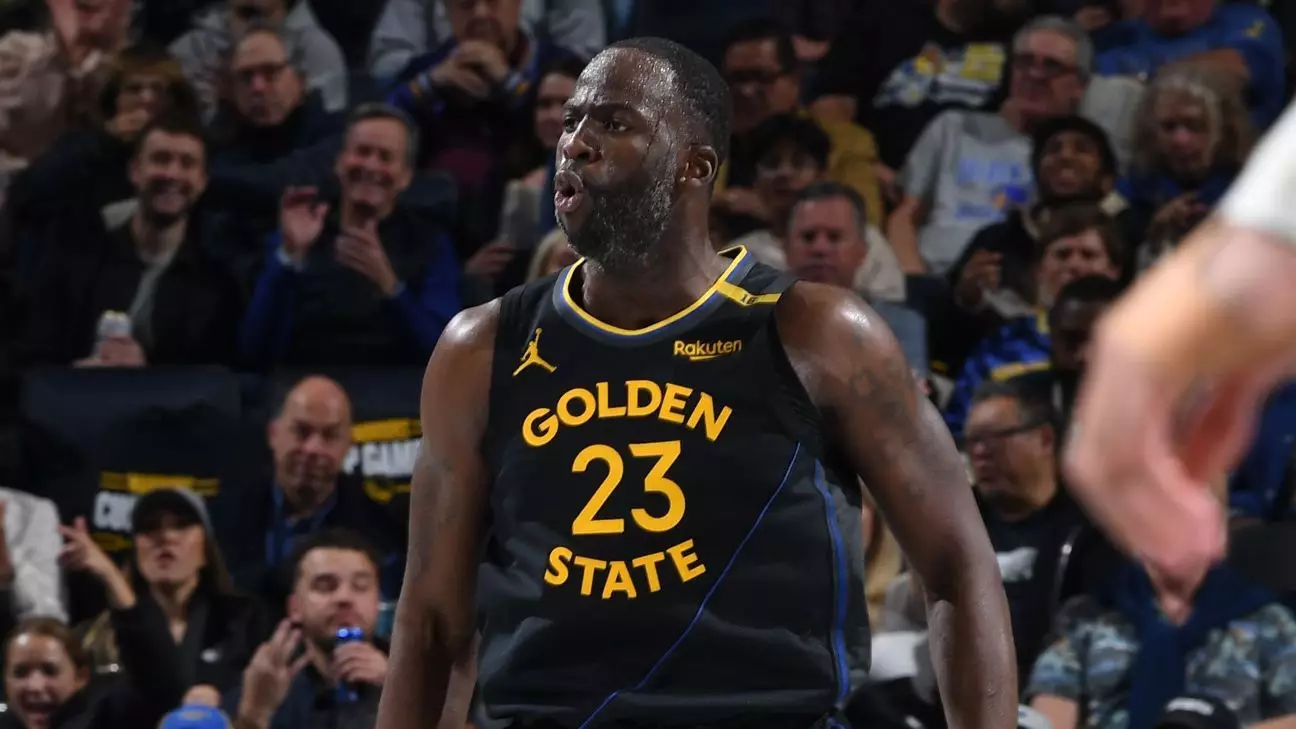In the dynamic world of sports, where tensions run high and emotions often dictate actions, few incidents garner as much attention as the conflict between teammates. The altercation between Draymond Green and Jordan Poole serves as a stark reminder of the complexities within professional sports teams. As Green moves forward from this controversial moment, it asks not just for forgiveness, but also introspection on accountability, growth, and the challenges of team cohesion.
In October 2022, a moment of volatility erupted during a Golden State Warriors’ practice, one that would reverberate through the team for years to come. A confrontation between Green and Poole escalated into a physical altercation when Green punched Poole after a heated exchange. This incident was captured on video, which not only shocked fans but also fractured the camaraderie within the Warriors’ locker room. Green’s subsequent public apologies to Poole and the rest of the team were attempts to mend the rift, yet the fallout lingered.
Such a violent confrontation raises serious discussions around conduct and professionalism in sports. Green, previously known for his aggressive playing style, found himself wrestling with the consequences of his actions. Issues of emotional management within high-stakes environments highlight the importance of communication and boundaries among players, who must navigate their personalities while sharing a common goal.
Recently, Green has made headlines again, addressing the incident as he reflected on Poole’s positive comments about the Warriors during his return to their home court as a member of the Washington Wizards. In his response, Green expressed a desire to move beyond the incident. His tweets and comments suggested a yearning for closure—a way to heal and restore the unity the team had lost. “I really am sorry,” he affirmed, emphasizing that it’s crucial to leave the painful chapter behind.
While such apologies are necessary, they are often insufficient in the context of garnering real forgiveness. As Green pointed out, revisiting the incident in public spaces can inadvertently revive old tensions, creating hurdles to real healing. Acknowledging past mistakes without dwelling on them is essential; both parties must prioritize moving forward rather than perpetually reliving the past.
In the aftermath of the altercation with Poole, Green faced further challenges that landed him in the spotlight for unsportsmanlike behavior yet again. He was suspended for choking a competitors in another incident and subsequently faced further scrutiny after striking another player in the face. These moments underscored the necessity for Green to confront his emotional tendencies, prompting him to seek professional help.
Green’s decision to engage in counseling showcases a commitment to personal growth that transcends the basketball court. Accessing support from therapists and sports psychologists offers insights into essential emotional regulation, illustrating how emotional intelligence can lead to better conflict resolution. Green’s acknowledgment of his faults and his emphasis on accountability reflect an evolving mindset, one that recognizes the importance of not only individual behavior but also its impact on the team’s overall dynamic.
As the current season unfolds, Green seeks not only redemption for past behavior but also a transformation in how he interacts within the intricacies of team dynamics. His current performance statistics indicate improvements in behavior; with eight technical fouls but only one ejection so far, there’s potential for a more measured approach on the court. The journey to improvement is rarely linear, but what’s crucial is a commitment to growth.
Despite setbacks, Green’s narrative serves as a beacon of hope; athletes can learn from their missteps and reinvent themselves. His desire to rewrite his story resonates beyond mere sports, representing a universal truth: accountability, healing, and growth are possible, no matter how deep the wounds might run.
The story of Draymond Green illuminates the dual nature of accountability in sports—where the line between aggression and sportsmanship can blur. It reminds us that within the competitive atmosphere of professional sports, the human element remains critically important. As he navigates his relationship with his former teammate and the broader challenge of team dynamics, Green offers a profound lesson on the significance of forgiveness, growth, and the determination to push forward despite adversity.


Leave a Reply